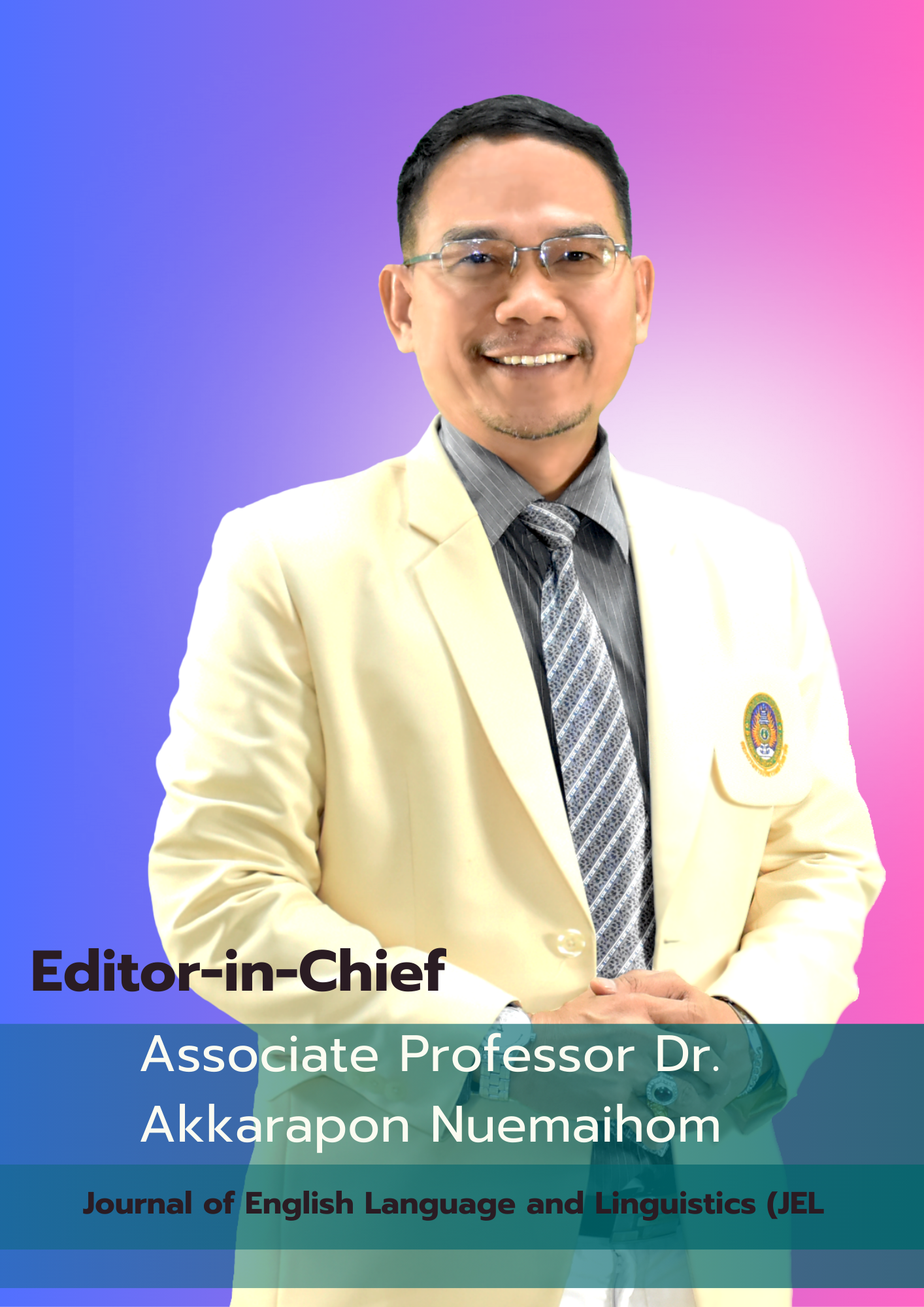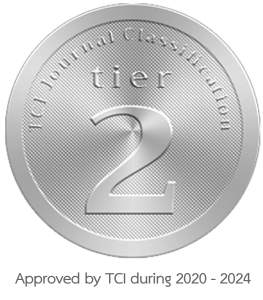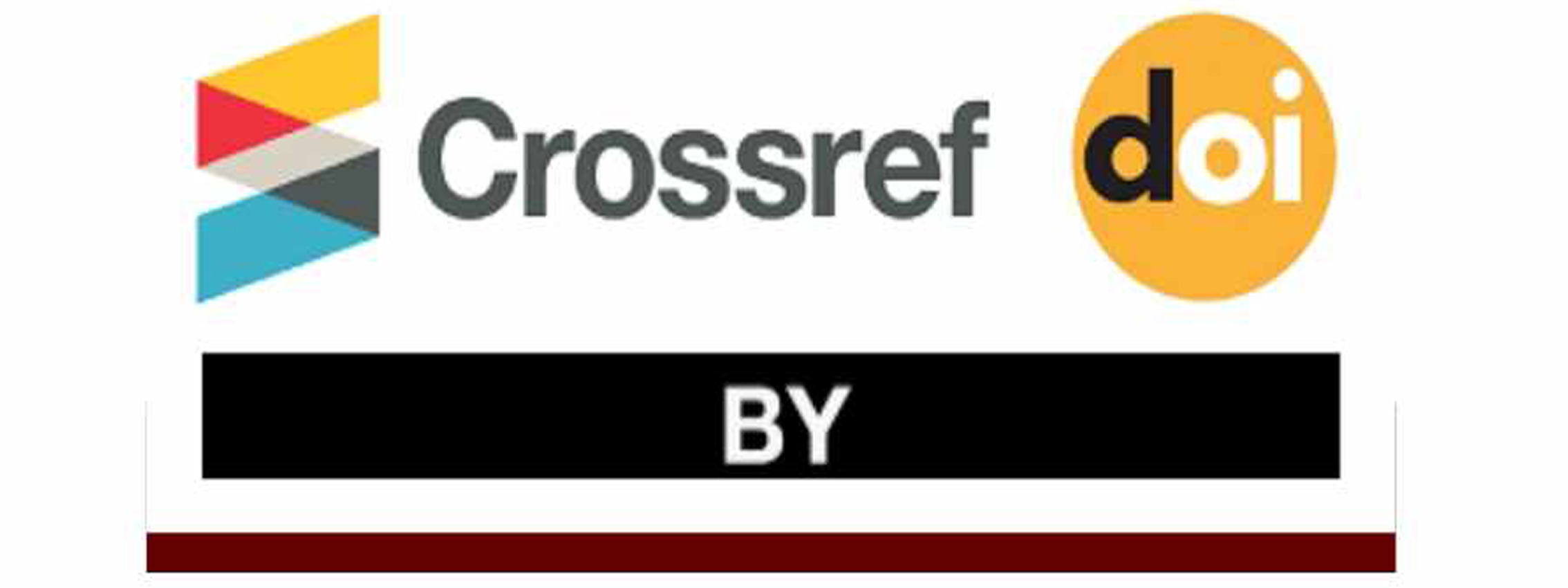The study of EFL students’ attitudes and behaviors toward using ChatGPT in English language learning
DOI:
https://doi.org/10.62819/jel.2024.656Keywords:
ChatGPT, EFL students’ attitudes, EFL students’ behaviors, English language learningAbstract
This study explored EFL students' attitudes and behaviors toward using ChatGPT in English language learning. The participants consisted of 48 Thai third-year undergraduate students from the Educational Technology and Communications program at Naresuan University, selected through purposive sampling. A questionnaire was used as the research instrument to assess students' attitudes and behaviors toward using ChatGPT in English language learning. The questionnaire was divided into three sections: general information, EFL students' attitudes toward using ChatGPT in English language learning, and EFL students' behaviors toward using ChatGPT in English language learning. The findings indicated that EFL students strongly agreed that ChatGPT was easy to use and convenient (M = 4.83). Regarding the development of the four key English language skills, students agreed that ChatGPT helped to improve writing (M = 4.31), reading (M = 4.13), and listening (M = 4.08) skills, though students were less confident in ChatGPT’s impact on speaking skills (M = 3.35). In terms of behaviors, students reported using ChatGPT most frequently to improve writing skills (M = 4.23), followed by reading (M = 3.94), listening (M = 3.63), and speaking skills (M = 3.04). Additionally, students indicated using ChatGPT to boost students’ interest and motivation in English language learning and investing time and effort into using ChatGPT to improve English proficiency. Lastly, EFL students demonstrated positive attitudes and behaviors towards using ChatGPT in English language learning, recognizing ChatGPT as a supportive tool. However, instructors need to establish clear guidelines on ethical considerations regarding using ChatGPT.
References
Ali, J. K. M., Shamsan, M. A. A., Hezam, T. A., & Mohammed, A. A. Q. (2023). Impact of ChatGPT on learning motivation. Journal of English Studies in Arabia Felix, 2(1), 41–49. https://doi.org/10.56540/jesaf.v2i1.51
Amin, M. Y. M. (2023). AI and ChatGPT in language teaching: Enhancing EFL classroom support and transforming assessment techniques. International Journal of Higher Education Pedagogies, 4(4), 1–15. https://doi.org/10.33422/ijhep.v4i4.554
Atakuziev, M., Margana, , & Gultom, A. M. (2024). University students’ attitudes and perceptions on learning English with ChatGPT. Formosa Journal of Sustainable Research, 3(8), 1745–1760. https://doi.org/10.55927/fjsr.v3i8.10163
Athanassopoulos, S., Manoli, P., Gouvi, M., Lavidas, K., & Komis, V. (2023). The use of ChatGPT as a learning tool to improve foreign language writing in a multilingual and multicultural classroom. Advances in Mobile Learning Educational Research, 3(2), 818–824. https://doi.org/10.25082/AMLER.2023.02.009
Bok, E., & Cho, Y. (2023). Examining Korean EFL college students’ experiences and perceptions of using ChatGPT as a writing revision tool. STEM Journal, 24(4), 15–27. https://doi.org/10.16875/stem.2023.24.4.15
Chiu, T. K. F., Xia, Q., Zhou, X., Chai, C. S., & Cheng, M. (2023). Systematic literature review on opportunities, challenges, and future research recommendations of artificial intelligence in education. Computers and Education, 4, 100–118. https://doi.org/10.1016/j.caeai.2022.100118
Črček, N., & Patekar, J. (2023). Writing with AI: University students’ use of ChatGPT. Journal of Language and Education, 9(4), 128–138. https://doi.org/10.17323/jle.2023.17379
Darasawang, P. (2007). English language teaching and education in Thailand: A decade of change. Cambridge Scholars Publishing.
Eryilmaz, M. (2015). The effectiveness of blended learning environments. Contemporary Issues in Education Research, 8(4), 251–256. https://doi.org/10.19030/cier.v8i4.9433
Fitria, T. N. (2023). Artificial intelligence (AI) technology in OpenAI ChatGPT application: A review of ChatGPT in writing English essay. ELT Forum, 12(1), 44–58. https://doi.org/10.15294/elt.v12i1.64069
Garkusha, N., & Gorodova, J. (2023). Pedagogical opportunities of ChatGPT for developing cognitive activity of students. Vocational Education and Labour Market, 11(1(52)), 6–23. https://doi.org/10.52944/PORT.2023.52.1.001
Gordijn, B., & Have, H. T. (2023). ChatGPT: Evolution or revolution? Medicine, Health Care, and Philosophy, 26(1), 1–2. https://doi.org/10.1007/s11019-023-10136-0
Ho, P. X. P. (2024). Using ChatGPT in English language learning: A study on IT students’ attitudes, habits, and perceptions. International Journal of TESOL & Education, 4(1), 55–68. https://doi.org/10.54855/ijte.24414
Jowarder, M. I. (2023). The influence of ChatGPT on social science students: Insights drawn from undergraduate students in the United States. Indonesian Journal of Innovation and Applied Sciences, 3(2), 194–200. https://doi.org/10.47540/ijias.v3i2.878
Kaewcharernnet, N., & Noonkhan, K. (2021). A study of English language learning strategies of 3rd year English major students at Naresuan University. Dokkaew Paritat. The Journal of Humanities, 1(2), 75–89.
Koraishi, O. (2023). Teaching English in the age of AI: Embracing ChatGPT to optimize EFL materials and assessment. Language Education & Technology (LET Journal), 3(1), 55–72.
Kostka, I., & Toncelli, R. (2023). Exploring applications of ChatGPT to English language teaching: Opportunities, challenges, and recommendations. Teaching English as a Second or Foreign Language–TESL-EJ, 27(3), 1–19. https://doi.org/10.55593/ej.27107int
Leunard, H., Rachmawati, R., Zani, B. N., & Maharjan, K. (2023). GPT Chat: Opportunities and challenges in the learning process of Arabic language in Higher Education. Journal International of Lingua and Technology, 2(1), 10–22. https://doi.org/10.55849/jiltech.v2i1.439
Liu, B. (2023). Chinese university students’ attitudes and perceptions in learning English using ChatGPT. International Journal of Education and Humanities, 3(2), 132–140. https://doi.org/10.58557/(ijeh).v3i2.145
Masa’deh, R. E., Majali, S. A., Alkhaffaf, M., Thurasamy, R., Almajali, D., Altarawneh, K., Al-Sherideh, A., & Altarawni, I. (2024). Antecedents of adoption and usage of ChatGPT among Jordanian University students: Empirical study. International Journal of Data and Network Science, 8(2), 1099–1110. https://doi.org/10.5267/j.ijdns.2023.11.024
Meniado, J. C. (2023). The impact of ChatGPT on English language teaching, learning, and assessment: A rapid review of literature. Arab World English Journal, 14(4), 3–18. https://doi.org/10.24093/awej/vol14no4.1
Meniado, J. C., Huyen, D. T. T., Panyadilokpong, N., & Lertkomolwit, P. (2024). Using ChatGPT for second language writing: Experiences and perceptions of EFL learners in Thailand and Vietnam. Computers and Education, 7, 1–9. https://doi.org/10.1016/j.caeai.2024.100313
Monika, M., & Suganthan, C. (2024). A study on analyzing the role of ChatGPT in English acquisition among ESL learners during English language classroom. Bodhi International Journal of Research in Humanities, Arts and Science, 8(2), 75–84. https://doi.org/10.13140/RG.2.2.28252.56961
Newell, A., & Simon, H. (1956). The logic theory machine—A complex information processing system. IEEE Transactions on Information Theory, 2(3), 61–79. https://doi.org/10.1109/TIT.1956.1056797
Nyutu, E. N., Cobern, W. W., & Pleasants, B. A.-S. (2021). Correlational study of student perceptions of their undergraduate laboratory environment with respect to gender and major. International Journal of Education in Mathematics, Science and Technology, 9(1), 83–102. https://doi.org/10.46328/ijemst.1182
Öztemur, H., Karabağ, A., Öcel, M., & Zengin, O. (2024). Exploring the horizons of education: Insights from UNESCO’s 2030 agenda. International Journal of Eurasian Education and Culture, 9(25), 167–179. http://doi.org/10.35826/ijoecc.1823
Phieanchang, T. (2024). Using ChatGPT to improve English grammar skills for EFL learners. Dhonburi Rajabhat University Journal, 18(1), 208–224.
Prapphal, K. (2003). English proficiency of Thai learners and directions of English teaching and learning in Thailand. Journal of Studies in the English Language, 1(1), 6–12.
Rahman, M. S., Sabbir, M. M., Zhang, D. J., Moral, I. H., & Hossain, G. M. S. (2023). Examining students’ intention to use ChatGPT: Does trust matter? Australasian Journal of Educational Technology, 39(6), 51–71. https://doi.org/10.14742/ajet.8956
Sakulprasertsri, K. (2020). Teachers’ integration of multimodality into 21st century EFL classrooms in Thailand: Practice and perception. Learn Journal, 13(2), 225–242.
Say, K., Srisawatsakul, C., & Boontarig, W. (2024). TalkTutorAI: Empowering English language proficiency through ChatGPT-assisted conversational practice – A case study at Ubon Ratchathani Rajabhat University, Thailand. Journal of Applied Informatics and Technology, 7(1), 12–26.
Songsiengchai, S., Sereerat, B. O., & Watananimitgul, W. (2023). Leveraging artificial intelligence (AI): ChatGPT for effective English language learning among Thai students. English Language Teaching, 16(11), 1–68. https://doi.org/10.5539/elt.v16n11p68
Syaripuddin, R. (2024). Enhancing EFL students’ oral proficiency: The ChatGPT-assisted debate clinic method. JELITA, 5(2), 627–639. https://doi.org/10.56185/jelita.v5i2.651
Taladngoen, U. (2019). English language policy and English language teaching practice in Thailand: A perfect match or a mismatch. Manutsat Paritat. The Journal of Humanities, 41(1), 17–26.
Tokac, U., Novak, E., & Thompson, C. G. (2019). Chatbots for language learning: Opportunities and challenges. Turkish Online Journal of Distance Education, 20(4), 202–212.
Ulla, M. B., Perales, W. F., & Busbus, S. O. (2023). ‘To generate or stop generating response’: Exploring EFL teachers’ perspectives on ChatGPT in English language teaching in Thailand. Learning: Research and Practice, 9(2), 168–182. https://doi.org/10.1080/23735082.2023.2257252
Visaltanachoti, C., Viriyavejakul, C., & Ratanaolarn, T. (2021). Teaching English to Thai students using an artificial intelligence technology algorithmic model: A prototype analysis. Turkish Journal of Computer and Mathematics Education (TURCOMAT), 12(14), 5623–5630. https://doi.org/10.17762/turcomat.v12i14.11718
Waluyo, B., & Kusumastuti, S. (2024). Generative AI in student English learning in Thai higher education: More engagement, better outcomes? Social Sciences & Humanities Open, 10, 101–146. https://doi.org/10.1016/j.ssaho.2024.101146
Yeunsak, S., Sriwichai, C., Duangfai, C., & Paichareon, N. (2022). A development of English proficiency test of undergraduate English major students of University of Phayao. Journal of MCU Humanities Review, 8(2), 353–368.


















